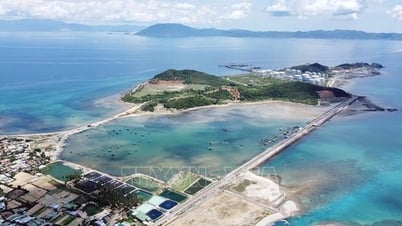Here, experts explain the harmful effects of exposure to high temperatures on kidney health, and indicate what body temperature can cause kidney failure.
Why does hot weather negatively affect the kidneys?
Hot weather causes dehydration and heat stress, explains Professor Emin ÖZBEK, PhD, a urologist at Istanbul-Cerrahpaşa University in Turkey. As temperatures rise, the body loses more water through sweat. This can lead to reduced blood flow to the kidneys and an increased risk of kidney damage.
Dehydration: In hot weather, the body loses more fluid through sweat. Without enough water, blood volume decreases, reducing blood flow to the kidneys. This impairs kidney function and can lead to acute kidney injury.

In hot weather conditions, we should drink enough water, especially when outdoors or exercising.
Photo: AI
Heat stress and kidney damage: Continuous or prolonged exposure to high temperatures, especially when working outdoors, can cause heat stress nephropathy — a form of chronic kidney damage caused by dehydration and prolonged inflammation.
Electrolyte imbalance: Excessive sweating also leads to loss of essential electrolytes such as sodium and potassium. This imbalance can put pressure on the kidneys as they try to regulate the body's internal environment.
Increased risk of kidney stones: Hot weather can lead to more concentrated urine due to low water intake, creating favorable conditions for kidney stone formation. Dehydration reduces urine volume, increasing the risk of crystal formation in the kidneys.
Increased burden on the kidneys: To reduce dehydration, the kidneys may reduce urine output. This can increase the amount of waste products that build up in the blood.
Thus: Prolonged exposure to high temperatures without adequate hydration and rest can put significant stress on the kidneys, increasing the risk of acute and chronic kidney problems. Staying hydrated and avoiding prolonged exposure to high temperatures are essential to protecting the kidneys.
Body temperature at this level can cause kidney failure.
Experts at the Nephrology Associates of Greater Cincinnati warn: Body temperatures of 40 degrees Celsius or higher can cause significant damage to the kidneys and other organs.
What should be done to prevent the harmful effects of heat on the kidneys?
To prevent the harmful effects of hot weather on the kidneys, it is necessary to keep cool, drink enough water, and follow these steps:
Stay hydrated : Drink plenty of water throughout the day, especially when outdoors or exercising. Avoid excessive caffeine and alcohol consumption.
Monitor urine color : Pale yellow or clear is a sign of adequate hydration; dark yellow or amber indicates dehydration.
Avoid exposure to excessive heat : Limit outdoor activities from 10am to 4pm. Rest in the shade or in a cool place, use a fan, air conditioner or cooling towel.
Dress appropriately : Wear lightweight, loose-fitting, light-colored clothing. Use a hat and sunscreen to protect against direct sunlight.
Replace lost electrolytes : If you sweat a lot, drink electrolyte-containing drinks in moderation. Avoid foods that are too salty.
Be careful if you have underlying medical conditions : People with kidney disease, diabetes or high blood pressure should follow medical instructions and adjust their water intake as advised by their doctor.
Recognize the warning signs : Signs include fatigue, dizziness, dry mouth, dark urine, decreased urination. Seek medical attention if these symptoms occur during extreme weather conditions.
The best way to protect your kidneys in hot weather is to stay hydrated, avoid heat stress, and listen to your body. Early prevention can significantly reduce your risk of kidney damage.
Source: https://thanhnien.vn/chuyen-gia-canh-bao-nhet-do-co-the-chung-nay-co-the-gay-suy-than-185250805084756779.htm


































































































Comment (0)